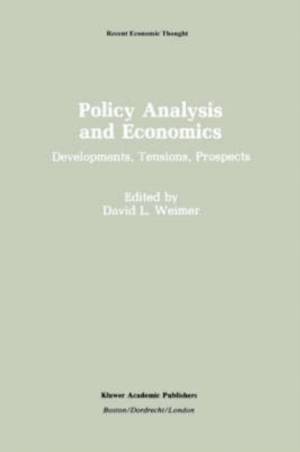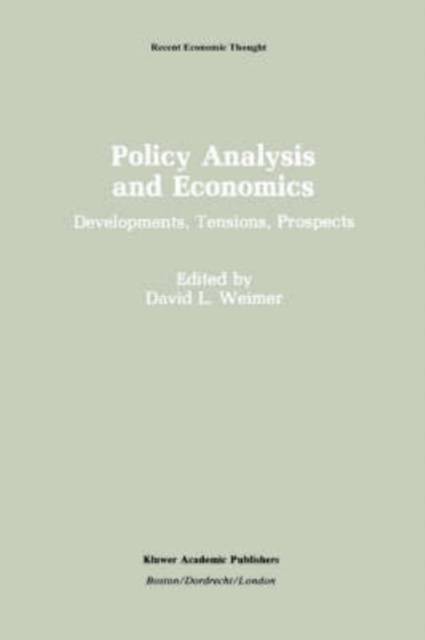
- Afhalen na 1 uur in een winkel met voorraad
- Gratis thuislevering in België vanaf € 30
- Ruim aanbod met 7 miljoen producten
- Afhalen na 1 uur in een winkel met voorraad
- Gratis thuislevering in België vanaf € 30
- Ruim aanbod met 7 miljoen producten
Zoeken
Policy Analysis and Economics
Developments, Tensions, Prospects
€ 167,95
+ 335 punten
Omschrijving
Long before policy analysis emerged as a separate profession with its own graduate schools, economists offered advice about government policies. Positive economics provides the tools for predicting the impacts of prop- osed policies; normative economics, especially welfare theory, offers a framework for valuing the impacts of policies in terms of efficiency and simple notions of equity. With the expansion of economic theory into ever wider fields of human behavior, it is no wonder that economists have prominence as teachers and practitioners of policy analysis. Indeed, many economists see policy analysis as essentially applied economics. Though other social scientists might object to this somewhat parochial view, economics and policy analysis share much in commom in terms of develop- ment and prospects. The purpose of this volume is to trace these interrela- tionships and explore the tensions that they create. Tensions arise for several reasons. Changes in the discipline of econ- omics affect the findings, methods, and personnel offered to policy analy- sis. For example, on the one hand, the "new institutional economics" appears to be extending the influence of economists to questions involving nonmarket oranizations, while on the other hand, the apparently growing emphasis within the economics profession on creating rather than empir- ically testing theory suggests that fewer of the best young scholars will be drawn to policy-relevant research. Within the schools of policy analysis, the drift toward public management may reduce the demand for traditional economic training.
Specificaties
Betrokkenen
- Uitgeverij:
Inhoud
- Aantal bladzijden:
- 213
- Taal:
- Engels
- Reeks:
- Reeksnummer:
- nr. 23
Eigenschappen
- Productcode (EAN):
- 9780792391548
- Verschijningsdatum:
- 30/09/1991
- Uitvoering:
- Hardcover
- Formaat:
- Genaaid
- Afmetingen:
- 152 mm x 229 mm
- Gewicht:
- 517 g

Alleen bij Standaard Boekhandel
+ 335 punten op je klantenkaart van Standaard Boekhandel
Beoordelingen
We publiceren alleen reviews die voldoen aan de voorwaarden voor reviews. Bekijk onze voorwaarden voor reviews.










